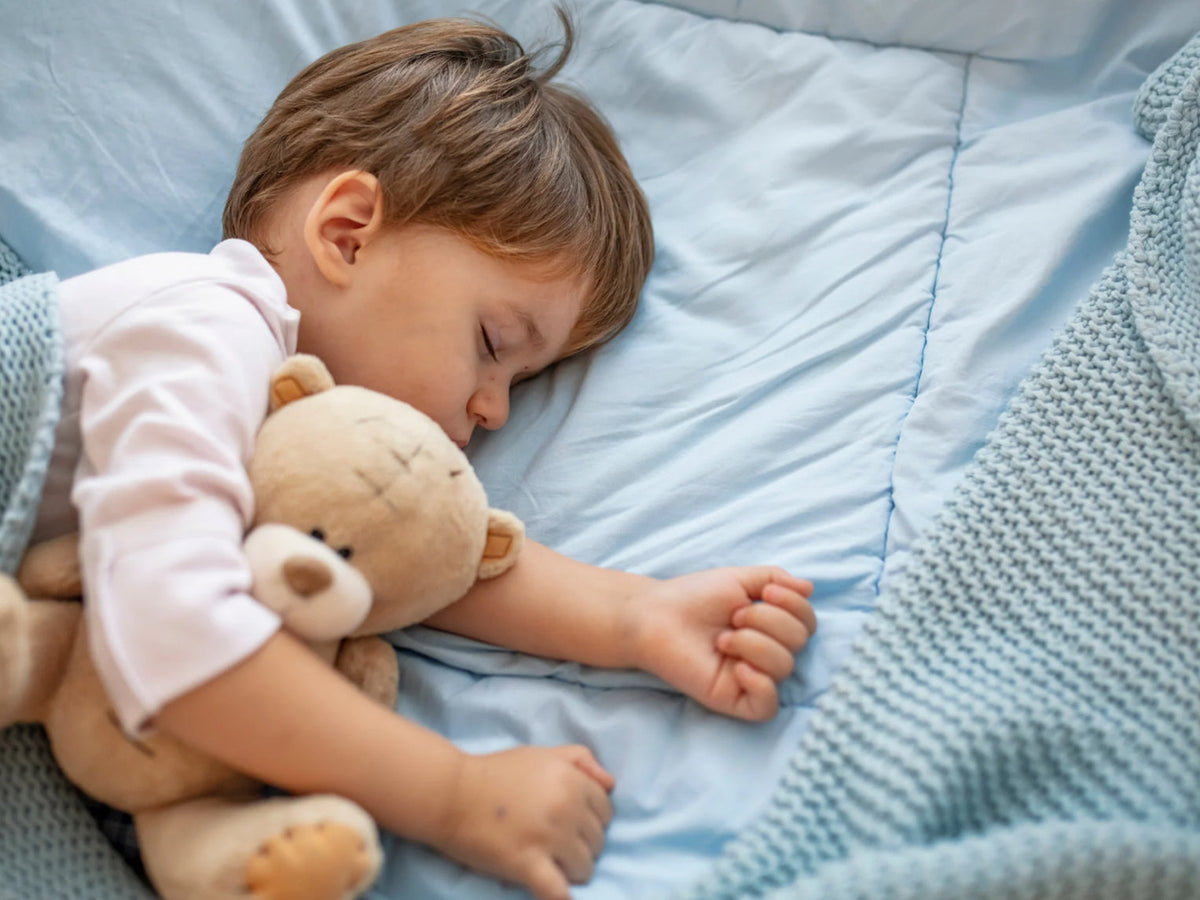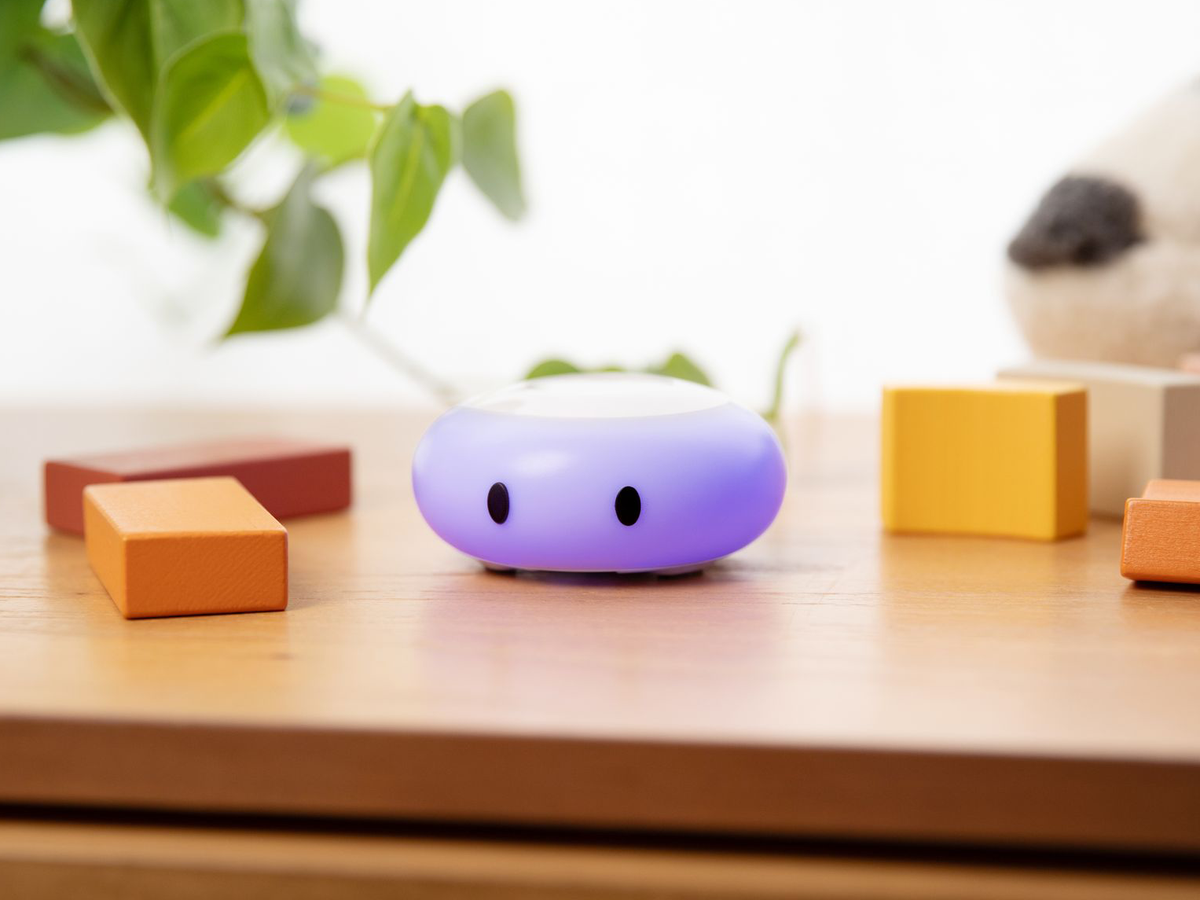
5 Tips for Helping Hard-of-Hearing Babies and Toddlers Catch Some Zzz’s
Sleep is great for your child’s mental and physical development— but it can be challenging to get a good night’s rest when your little one is living with a hearing condition. Research highlights that medical conditions are one of the top factors that disrupt the sleep quality of children. Unfortunately, this bounces back: poor sleep quality can further aggravate a child's condition, and continue the cycle.
This can be very concerning for parents who simply want the best for their child’s health and well-being. Here are a few tips for parents who want to help children with hearing impairments get a good night's sleep.
Make your child more comfortable at night
Children that are hard of hearing may be afraid to be left alone in the dark without being able to sense anything.
Reassurance and security are important for children. You can give them a hug every night, and gently gesture that you’re leaving the room so they won’t be surprised by your absence. You can also put up rotating light mobiles that cast faint but cute patterns on their bedroom walls so that their room won't be pitch black.
Establish a proper nighttime routine
The “best” bedtime routine may look different for each child, but experts point out that there are key dos and don’ts.
Board-certified pediatrician Vincent Iannelli has worked with kids for over 20 years, and advises that bedtime routines must be appropriate for the age of your child. Providing a stuffed animal may be dangerous for babies, but it can be comforting for kids that are one year old and above. Having an early bedtime routine can also be great for your little one, and you can adjust accordingly as they grow older.
Improve their sleeping environment
While there are certainly no monsters under your kid’s bed, certain details in their bedroom may be keeping them up at night.
For instance, light highly affects your child’s circadian rhythm, so bright lights can easily disrupt their sleep cycle. Since the lightest stage of their sleep occurs around 3-6 AM, they may wake up and find it difficult to go back to sleep if they’re exposed to brightness. In this case, investing in blackout curtains or dimmer night lights can help your child sleep better.
Set up a program for your child
While changes in their sleep routine are certainly helpful, your child may need greater support for their hearing conditions.
If their hearing condition has become very disruptive at night, you can work with an audiologist as they counsel patients with auditory impairments. They will be able to create a program based on your child’s needs. Their knowledge of treatment technologies and equipment will be an advantage as you test out different strategies that can help your child. Through these personalized programs, your child may eventually find relief from hearing and sleeping difficulties.
Invest in sound-generating devices
Aside from trying personalized programs, professionals may recommend devices to help your child sleep better at night.
Kids struggling with tinnitus can find relief during sleeping time with the help of sound-generating devices. These gadgets are often placed in the bedroom to emit natural sounds that relieve users from constant ringing sounds in their ears. These sounds are also very relaxing, making it easier for your child to get some zzz’s.
Your child will be happier and healthier once their sleep quality improves. So if you need help getting your child to go to sleep, check out our sleeping solutions at Little Hippo. Our all-in-one alarm clock and sleep trainer can even help your child sleep longer, so that you can get a good night's rest, too!
Written by Maeve Luna for littlehippo.com
Also in Blog

6 Tips for Parents to Help Kids Adjust to the Fall Back Time Change
Every year, parents brace themselves for that bittersweet event known as the “fall back” — when clocks turn back one hour for the end of Daylight Saving Time (DST). While gaining an hour of sleep sounds amazing in theory, parents of babies and young kids know it usually means one thing: an hour earlier wake-up. Here are six helpful tips to make the “fall back” transition smoother for your family.

6 Helpful Tips for Parents to Navigate the Spring Forward Time Change
Daylight Saving Time (DST) is right around the corner, and for parents of young children and babies, the “spring forward” shift can feel like a daunting challenge. Losing an hour of sleep and adjusting to a new schedule can lead to cranky mornings, disrupted sleep patterns, and general chaos in the household. Fortunately, there are ways to ease the transition and help your little one adjust smoothly. Here are six helpful tips to make this time change easier for both you and your preschooler.

